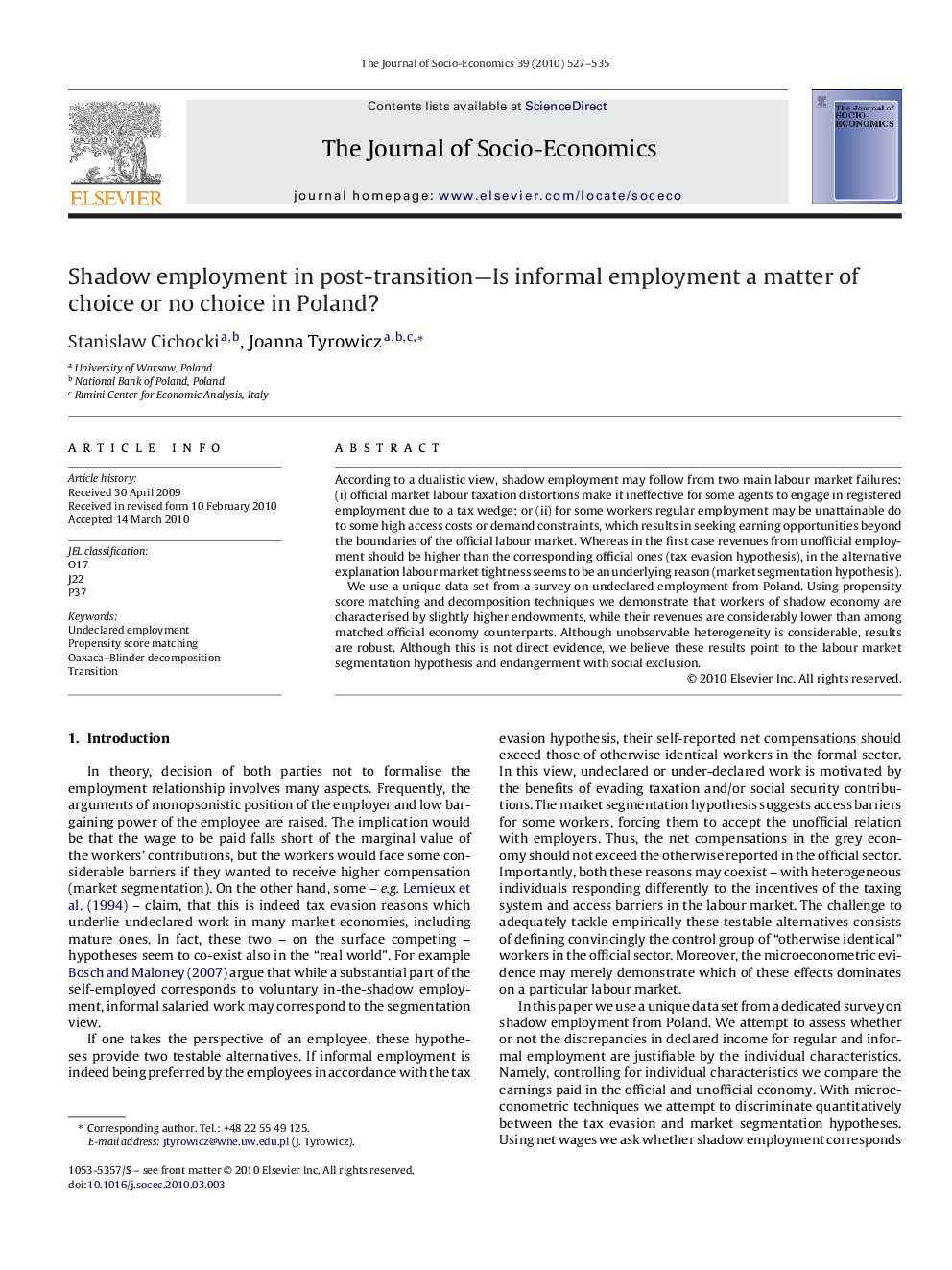| Article ID | Journal | Published Year | Pages | File Type |
|---|---|---|---|---|
| 971373 | The Journal of Socio-Economics | 2010 | 9 Pages |
According to a dualistic view, shadow employment may follow from two main labour market failures: (i) official market labour taxation distortions make it ineffective for some agents to engage in registered employment due to a tax wedge; or (ii) for some workers regular employment may be unattainable do to some high access costs or demand constraints, which results in seeking earning opportunities beyond the boundaries of the official labour market. Whereas in the first case revenues from unofficial employment should be higher than the corresponding official ones (tax evasion hypothesis), in the alternative explanation labour market tightness seems to be an underlying reason (market segmentation hypothesis).We use a unique data set from a survey on undeclared employment from Poland. Using propensity score matching and decomposition techniques we demonstrate that workers of shadow economy are characterised by slightly higher endowments, while their revenues are considerably lower than among matched official economy counterparts. Although unobservable heterogeneity is considerable, results are robust. Although this is not direct evidence, we believe these results point to the labour market segmentation hypothesis and endangerment with social exclusion.
